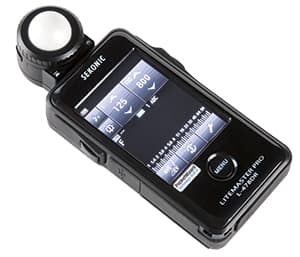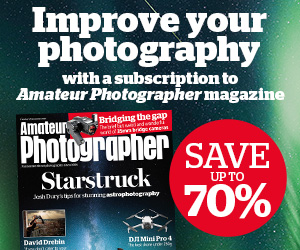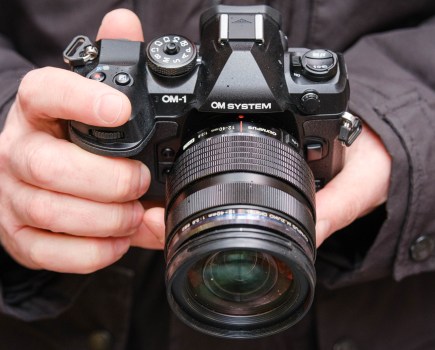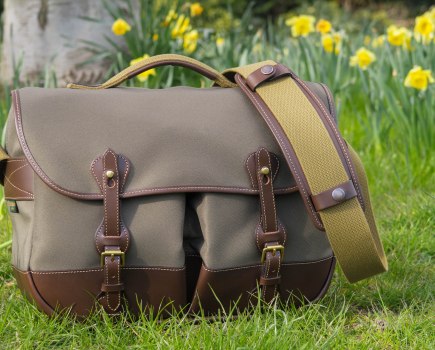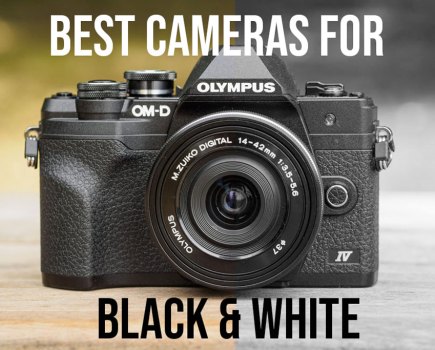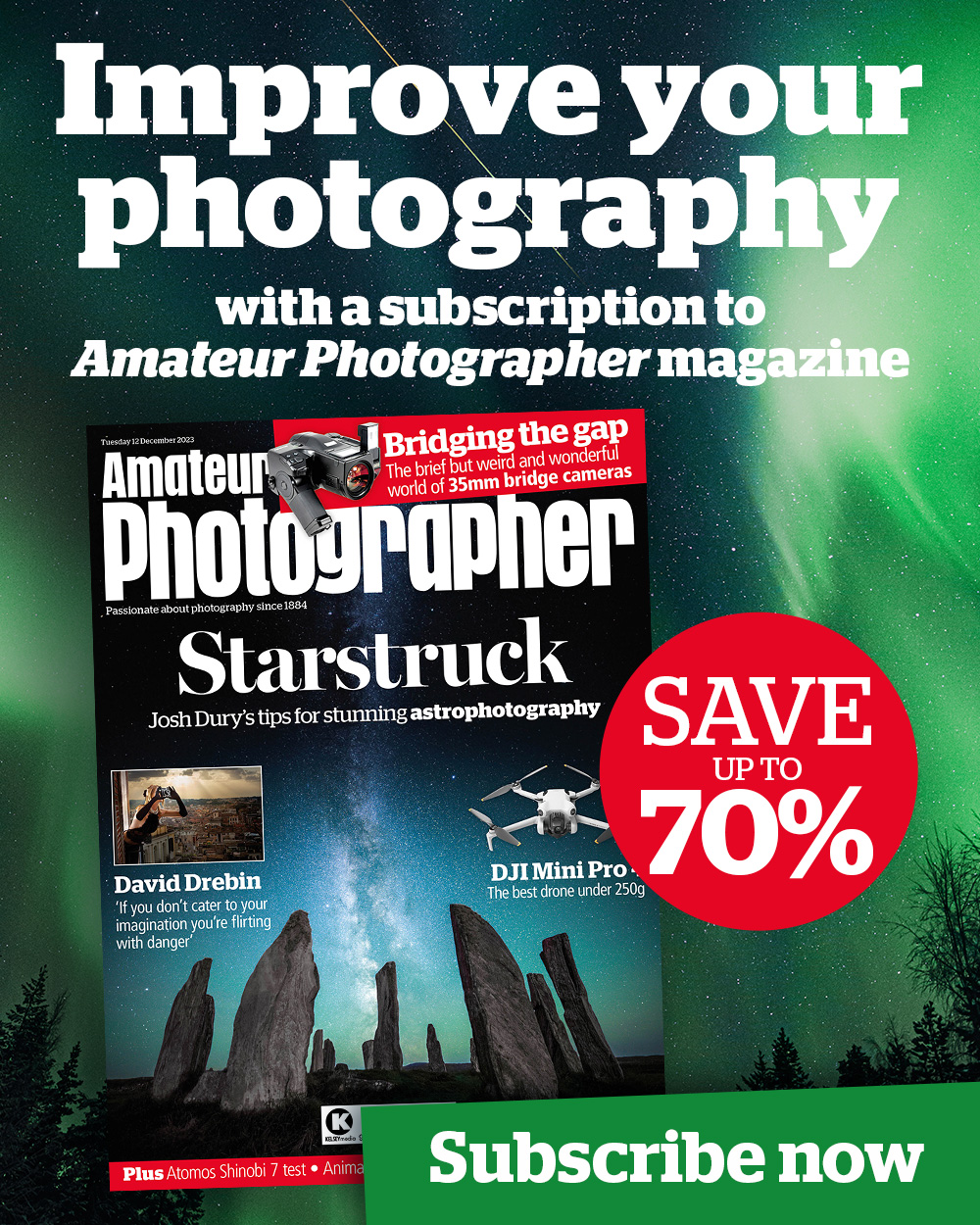 Gossen Digipro F2
Gossen Digipro F2
Price: £230
www.intro2020.com
Gossen is a name synonymous with high-quality light measurement and the Digipro F2 is no exception, with a large display and a simple interface that can be operated straight out of the box with barely a glance at the instructions. Measuring flash and continuous light in all situations from studio to location and filming, it covers incident and reflected readings.
The Digipro F2 is beautifully designed with all controls under the thumb on the front panel and the flash sync socket on the side. The sensor head swivels up and over in two click settings, and it feels as though it will always perform when needed. Covering a wide measuring range with exceptional accuracy, this lightmeter covers exposure times from 1/8000sec-60mins, and flash sync speeds up to 1/1000sec.
 Sekonic L-478DR LiteMaster Pro
Sekonic L-478DR LiteMaster Pro
Price: Around £325
www.sekonic.com
Sekonic’s LiteMaster Pro is a digital lightmeter with a difference, as it features a colour touchscreen that allows you to scroll through the menus, adjust settings and take readings for continuous and flash lighting through the whole range of still and moving image capture. Profile settings specific to your camera can be fine-tuned using Sekonic’s Data Transfer Software, or the data can be entered manually. Compatibility with PocketWizard technology is built in, allowing you to control and trigger your flash devices from the meter.
The feel and layout of the meter’s controls are very similar to other Sekonic models over the past few decades, but the added features lift it to stratospheric levels of sophistication. The build quality is excellent, with tight-fitting rubber dust covers over the sync and USB sockets, and a very neat telescopic diffuser dome fitted to the rotating measuring sensor. This meter provides many possibilities and options, and a long, calm reading of the manual is essential to get the best from it.
 Kenko KFM-1100 Auto Digi Meter
Kenko KFM-1100 Auto Digi Meter
Price: Around £280
As a Minolta Auto Meter graced my belt for many years, I was delighted to discover that Kenko is now manufacturing the Minolta meter range while incorporating a series of improvements. The KFM-1100 looks similar to my old meter, and is the base model of the series. It measures incident and reflected ambient light, as well as flash output, thanks to a removable invercone.
The simple layout of the controls and the clearly marked buttons, along with a large, easy-to-read LCD display, make the KFM-1100 easy to use. The display shows the aperture readout in 1/10-stop increments, and ambient light sensitivity is sufficient for a shutter speed range from 30min-1/8000sec.
I particularly like the ‘Analyze’ function, which calculates the exposure ratio of ambient light to flash in a mixed-light setting, and when fill-in is needed to augment natural light.
 Polaris Flash Meter
Polaris Flash Meter
Price: Around £148
www.intro2020.com
The Polaris is a compact flash and ambient lightmeter that is exceptionally well made and versatile for its price. On powering up, there is a useful battery-check scale and automatic power shutdown after 5mins, while a memory feature retains all the settings when the meter is turned off or the battery changed. I was impressed by the multi-flash feature, which calculates how many times to fire your flash to achieve the exposure at your required aperture setting. Although it does not have the largest LCD display among the models tested here, it is certainly easy to read, even at arm’s length, and shows both shutter speed and f-stop in 1/10-stop increments.
While it isn’t possible to twist the invercone to face the light source, the readings are accurate and consistent, and just a simple slide switches the device between incident and reflective metering. The Polaris is excellent if you are using studio lights for the first time and you want to ensure correct exposure.
 Sekonic L-308S Flashmate
Sekonic L-308S Flashmate
Price: Around £140
www.sekonic.com
With the exception of the LightMeter Free smartphone app, this is the most compact meter tested here. It sits well in the small open-topped belt pouch that is included, and while it is genuinely pocket-sized it is not fiddly to use. I found the accuracy in repeated tests exceptionally good and it matched the most expensive meters here. The built-in lumisphere (invercone) does not rotate, but the switch to change from incident to reflected reading is located easily under the thumb. A lumidisk diffuser is included for contrast and brightness measurements. The LCD screen is small compared to other meters, but is an improvement over previous incarnations. The build quality is good for an entry-level model and should survive regular use with a reasonable amount of care.
 LightMeter Free
LightMeter Free
Price: Free (Android devices only)
play.google.com/store/apps
This free app, from David Quiles, turns your Android smartphone into a surprisingly accurate ambient lightmeter. The interface has a wonderfully classic look to it, just like a lightmeter that you might pick up at a collector’s fair. How well the app works depends a lot on how good the mobile device itself is, and the phone must be able to save Exif data. Reflected light readings can be taken if the smartphone has a camera, with spot measurements possible if the phone has a zoom lens. We compared a reading against one taken on an Olympus OM-D E-M10 and the result was spot on. An ad-free version is available from the same developer for £1.65

